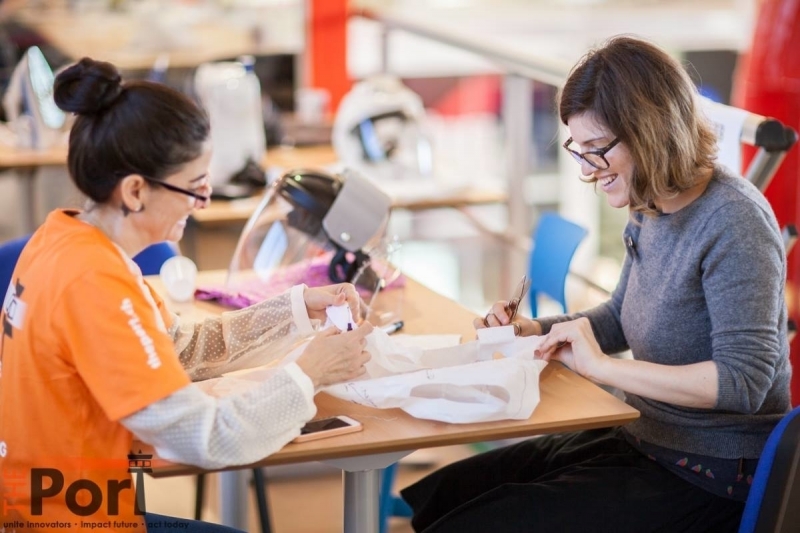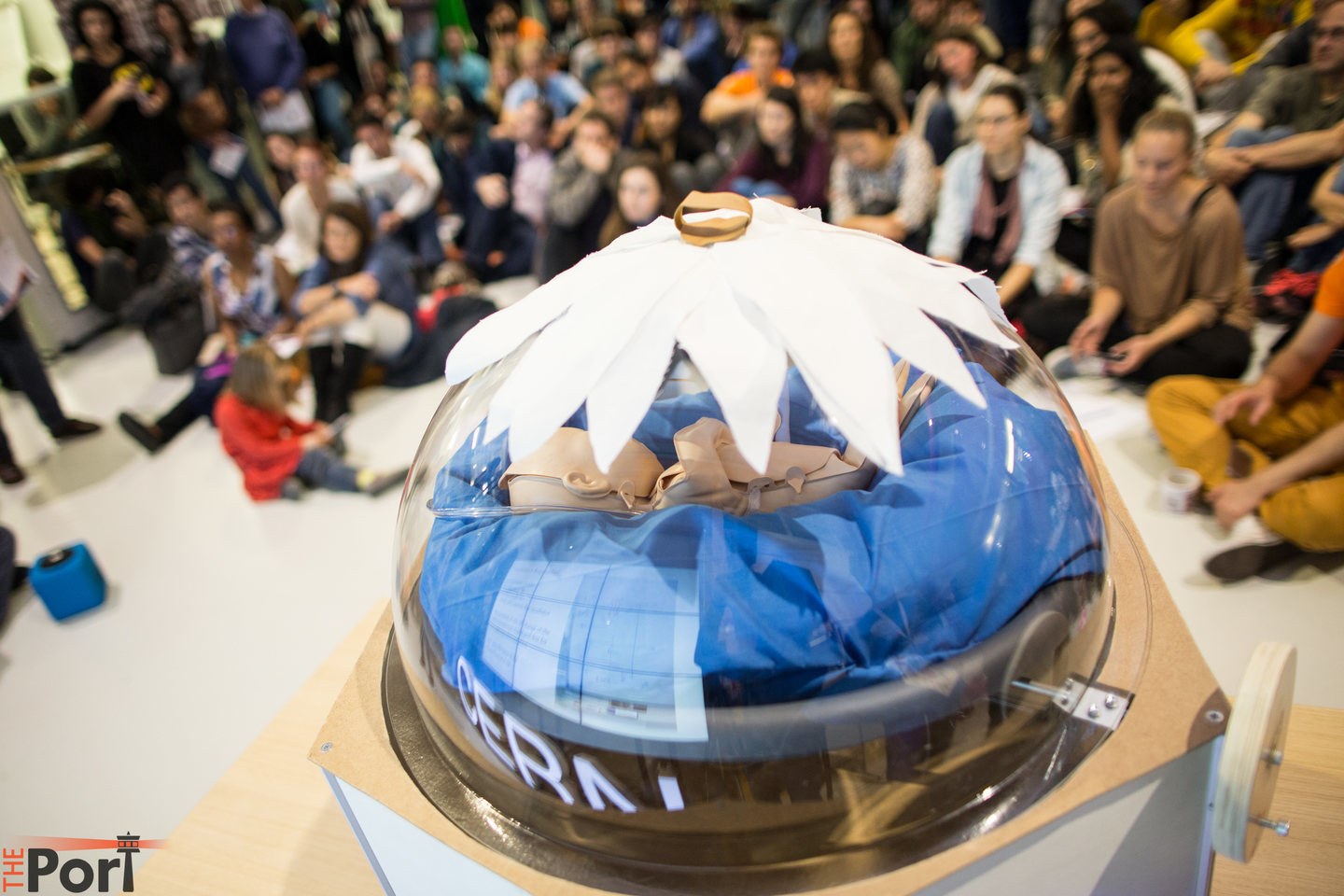Take 134 participants from 42 different countries, divide them into 13 teams tasked with tackling different humanitarian problems, give them six weeks to prepare, then launch a 60-hour hackathon to build working prototypes and solutions. The results? Astonishing solutions that just might provide real benefit to society (see webcast recording).

THE Port hackathon*, now in its second year, took place at CERN and Geneva’s Campus Biotech from 2 to 4 October. Of the 54 projects proposed by members of non-governmental and international organisations, 13 projects were chosen for the hackathon itself.
One team was tasked to develop a low-cost high-tech incubator for premature babies, primarily for rural hospitals in developing countries. The incubator needed to be affordable, effective and sustainable. Their prototype featured an easy-to-open hemispherical hood, allowing the premature baby to be viewed from all angles, and an ergonomic mattress and cover which can act as a phototherapy umbrella. Multiple temperature probes inside and outside the incubator monitor the baby’s development. The ideas are now being taken forward by the GlobalNeoNet alliance.
Another team looked at improving food bags to be safely dropped from airplanes. Humanitarian organizations currently supply food to many regions around the world via air drops and bags are packed up to 8 times to avoid bursting. This technique results in high material and work costs that often exceed the food’s value. During the hackathon, the team dropped different bag designs from a crane at CERN to test their robustness. See the results in the ICRC video below.
A third team worked to improve masks worn by children suffering from xeroderma pigmentosum, a genetic disorder that causes extreme sensitivity to ultraviolet light. Read more in the CERN Bulletin.
While the hackathon weekend is now over, the projects will continue to be developed. A complete list of the projects can be found here. You can follow their progress on THE Port’s website, as well as their newsletter and social media channels.
*THE Port is a Swiss association under Article 60 of the Code Civil Suisse.

